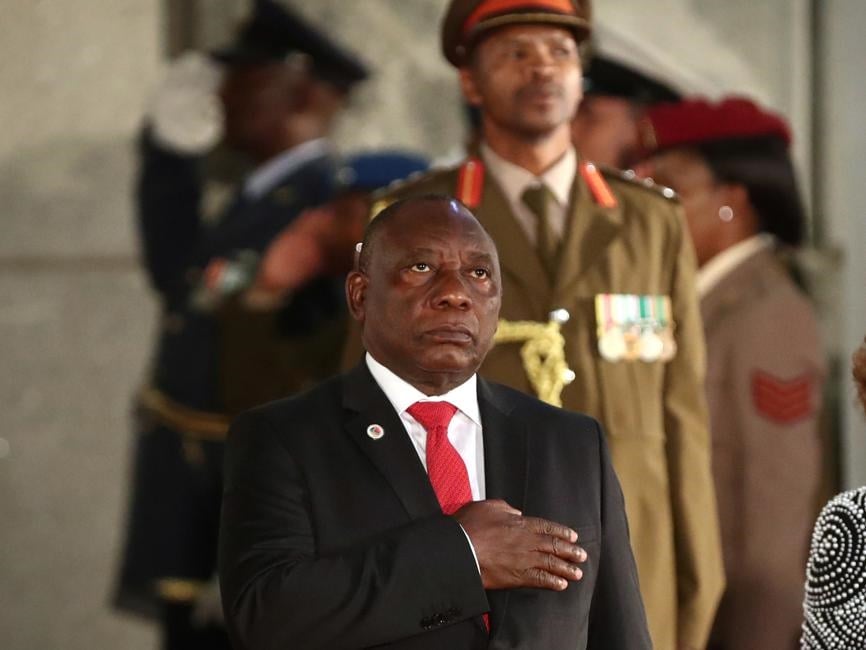
One reason for the country’s lacklustre economic performance has been the load shedding early this year, together with the continued uncertainty in the supply of electricity and the state of Eskom, President Cyril Ramaphosa says.
Delivering his first state of the nation address under the country’s sixth administration on Thursday in Cape Town, Ramaphosa said government had learnt a clear lesson – that economic growth required “a reliable and sustainable supply of electricity”.
He said national power utility “Eskom is facing serious financial, operational and structural problems”.
“Since the load shedding earlier this year, Eskom has made much progress in implementing its nine-point plan, ensuring better maintenance of its generation fleet, reducing costs and ensuring adequate reserves of coal,” he said.
To solve electricity supply problems, said Ramaphosa, Eskom was deploying its most skilled and experienced personnel to where they were needed most.
He said the utility’s financial position remained a matter of grave concern.
“With the current committed funding from government, outlined in the 2019 budget, Eskom has sufficient cash to meet its obligations until the end of October 2019.”
For Eskom to default on its loans would cause a cross-default on its remaining debt, he said, and would have a huge impact on the already constrained fiscus.
“We will therefore table a Special Appropriation Bill on an urgent basis to allocate a significant portion of the R230 billion fiscal support that Eskom will require over the next 10 years in the early years.”
Ramaphosa said that government’s intervention was vital because the economy could not be allowed to fail.
He said that more details would be provided by the minister of finance during the upcoming budget speech.
“We will announce the appointment of a new CEO following the Mr Phakamani Hadebe stepping down,” he said, adding that Hadebe came in at a difficult time at Eskom and did a great deal with the board led by Jabu Mabuza to stabilise the company.
“We will soon also be appointing a chief restructuring officer, who will be expected to reposition Eskom financially with careful attention to the mix between revenue, debt and cost structure of the company.”
Ramaphosa said that Eskom was working with the government and other stakeholders to address its overall debt as well the debt owed by municipalities and individual users.
Land
Ramaphosa said that faster economic growth required accelerated land reform in rural and urban areas and a clear property rights regime.
“We have received the report of the presidential advisory panel on land reform and agriculture, which will now be presented to Cabinet for consideration,” he said.
He said the panel’s recommendations would inform the finalisation of a comprehensive, far-reaching and transformative land reform programme.
“In the immediate term, the government will accelerate efforts to identify and release public land that is suitable for smart, urban settlements and for farming,” said Ramaphosa.
Last year he had announced a stimulus and recovery package, in which he had promised to prioritise funding for emerging farmers.
“Over the medium-term budget period, R3.9 billion has been allocated to the Land Bank to support black commercial farmers,” he said.
He said government remained “committed to prudent borrowing and stringent expenditure management to stabilise our public finances and lower the debt trajectory”.
Reserve Bank
Ramaphosa said the South African Reserve Bank was a critical institution of democracy and enjoyed wide credibility and standing within the country and internationally.
He said price stability was a necessary but not a sufficient condition for economic growth.
“Rising prices of goods and services erode the purchasing power of all South Africans, but especially that of the poor.”
He said that inflation undermined the competitiveness of exports and import-competing firms, putting industries and jobs at risk.
“For these reasons, our Constitution mandates the South African Reserve Bank to protect the value of our currency in the interest of balanced and sustainable growth,” he said.
Today, said Ramaphosa, “we reaffirm this constitutional mandate, which the Reserve Bank must pursue independently, without fear, favour or prejudice”.
He said the Constitution also required that “there should be regular consultation between the Reserve Bank and the minister of finance to promote macroeconomic coordination, all in the interests of employment creation and economic growth.
“If we are to be internationally competitive, if we are to attract investment, we must address the high cost of doing business and complicated and lengthy regulatory processes,” he said.
He said South Africa needed to reach a point where no company needed to wait more than six months for a permit or licence and new companies should be able to be registered within a day.
“We will continue to reduce the cost of doing business by reducing port export tariffs, pursuing lowest cost electricity generation options, and making rail transport more competitive and efficient,” he said.
Ramaphosa said the government would intensify its investment drive started last year.
Of the R300 billion of investments announced at the inaugural Investment Conference last year, he said, more than R250 billion worth of projects had entered implementation phase.
“We continue to build a pipeline of investments, which will be showcased at the second South African Investment Conference to be held from November 5 to 7.”
He said the private sector had committed to invest R840 billion in 43 projects over 19 sectors and creating 155 000 jobs in the next five years.
“In discussions with business, government has committed to remove the policy impediments and accelerate implementation of these projects,” he said.
He said urgent steps were being taken on “a set of priority reforms to improve the ease of doing business by consolidating and streamlining regulatory processes, automating permit and other applications, and reducing the cost of compliance”.
“Infrastructure is a critical area of investment that supports structural transformation, growth and job creation,” said Ramaphosa.
He said this was essential to our economic rejuvenation, “to giving meaning and effect to our new dawn”.
 |
| ||||||||||||
| |||||||||||||




 Publications
Publications
 Partners
Partners








